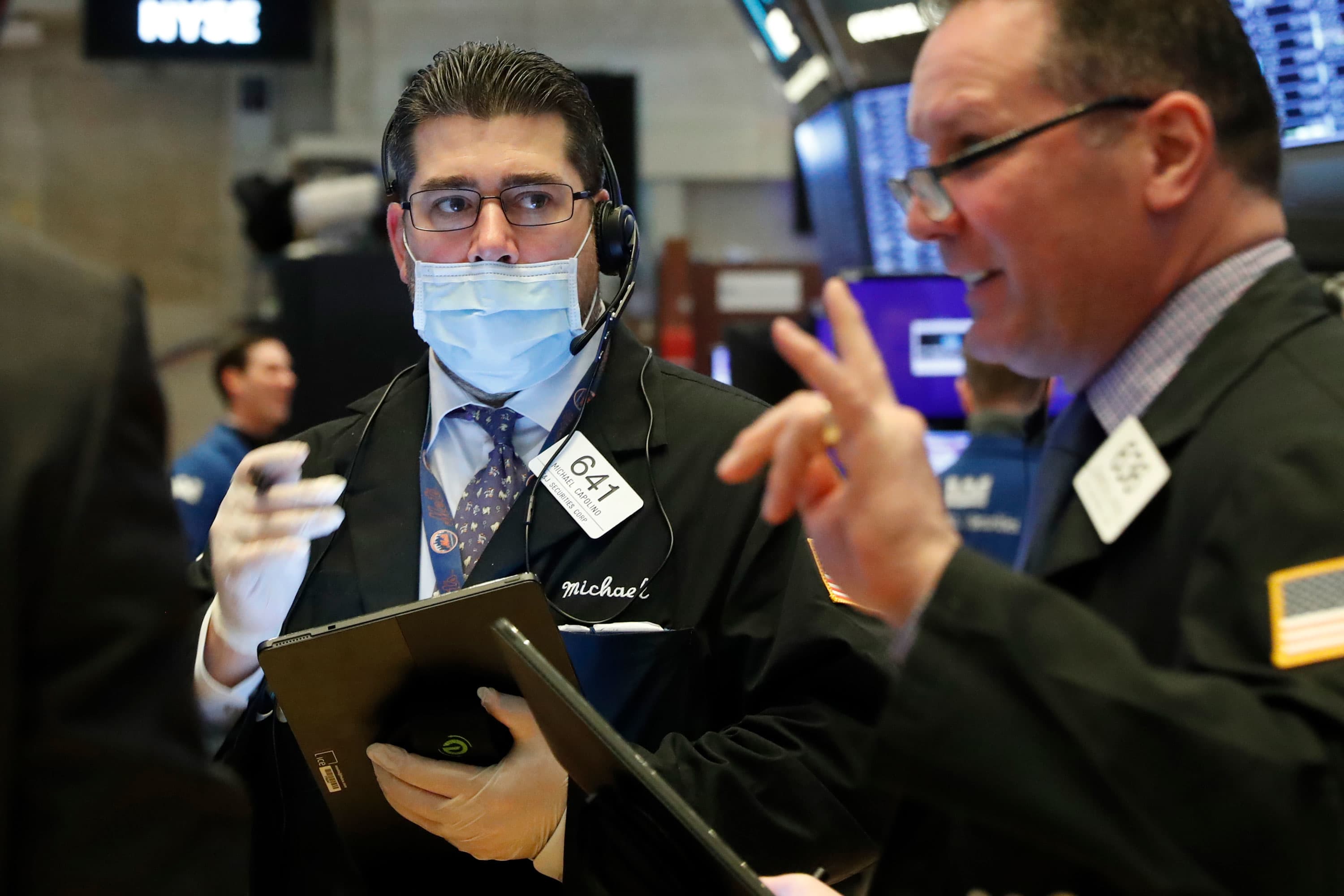
Traders work on the floor of the New York Stock Exchange (NYSE) in New York, U.S., March 20, 2020.
Lucas Jackson | Reuters
European stocks looked to be leading a shift in sentiment on Friday after a massive tech sell-off on Wall Street in the previous session, which briefly spooked global markets.
U.S. behemoths Facebook, Amazon, Netflix, Alphabet and Microsoft led the broader tech sector’s sharpest daily decline since March during regular trading hours on Thursday, having fueled much of the U.S. equity market recovery to date.
Even after these declines, the Dow Jones is down just 0.9% year-to-date, while the S&P 500 remains up by 7% and the Nasdaq sits 28% higher over the same period, having surged 73% since the March crash lows.
Thursday’s plunge rippled through global equities, causing European stocks to turn sharply lower at the end of their trading session and prompting Asia Pacific markets to slide into the red overnight, led by a 3% decline for Australia’s S&P/ASX 200.
Despite a negative open Friday, European markets have now begun to claw back some of the losses, fueled by rallies for cyclical and value stocks such as, banks, autos and travel and leisure companies. The pan-European Stoxx 600 index gained 0.8% by late morning and U.S. futures have also turned positive.
Many commentators have suggested that Thursday’s wobble was a necessary correction, with investors taking profits and shaving off some of the speculative momentum that had been disproportionately pumped into tech and other growth stocks.
Growth stocks are those of companies with significant and sustainable positive cash flow and greater future earnings, with revenues expected to grow faster than that of industry peers. Value stocks are those trading at a lower price than their fundamentals, such as earnings, dividends or sales.
BCA research strategist Mathieu Savary said in a note Friday that the pattern of value outperforming tech would likely continue throughout the duration of the correction, with European and Japanese equities outperforming due to their lesser reliance on tech.
“Ultimately, the tech underperformance can only continue beyond the correction if yields can move higher, which will hurt growth stocks that derive a substantial proportion of their intrinsic value from long-term deferred cash flows,” Savary said.
“Hence, the current tech mania can continue if inflation remains low. The jury is still out.”
He added that even if tech underperformance did persist, the broader market would likely be able to stabilize, but a more profound shift in leadership away from growth stocks would bring about a deeper and more enduring correction.
Expect volatility
Investors continue to contend with a backdrop of mixed economic data, sporadic spikes in coronavirus cases, geopolitical tensions and daily news flow on the prospect of a widely available vaccine.
Simona Maellare, global co-head of the alternative capital group at UBS, told CNBC’s “Squawk Box Europe” on Friday that sentiment would continue to guide valuations and Thursday’s dip evidenced the fragility of markets at present.
“I think we will continue to see the ‘winner takes all’ mentality that we have seen over the last couple of months, i.e. investors concentrating and piling in on some sectors which will benefit from a recovery and penalizing the others, so tech clearly has been the net beneficiary, as well as healthcare,” she said.
However, Maellare anticipates that these sectors will also be the most volatile. “Two weeks from today we could have the same conversation,” she continued. “I think the picture is going to change based on the daily news flow.”
‘Barbell’ allocation
Barclays analysts noted Friday that the “duration trade” within the equity market is “crowded and looks vulnerable to style rotation.”
“This could be either due buyers’ fatigue, a more jittery bond market, positive vaccine news flow, or all of them together,” they said in a note.
“Therefore, our view has been to diversify exposure and hold a barbell sector allocation with a value tilt, to hedge this extreme quality/growth concentration.”
Following a tactical upgrade of banks in June, Barclays on Thursday added to its energy exposure at the expense of healthcare stocks. Barclays analysts suggested that equities will be in for a “bumpier ride but will continue to climb the wall of worry.”
“Following a strong summer run, many risks could cause more volatility along the way, in particular for the parts of the market that seem priced for perfection,” the note said.
“Yet, we remain of the view that the growth-policy tradeoff, the lack of alternatives and the still light positioning as a whole are supportive of a further grind higher in equities.”




